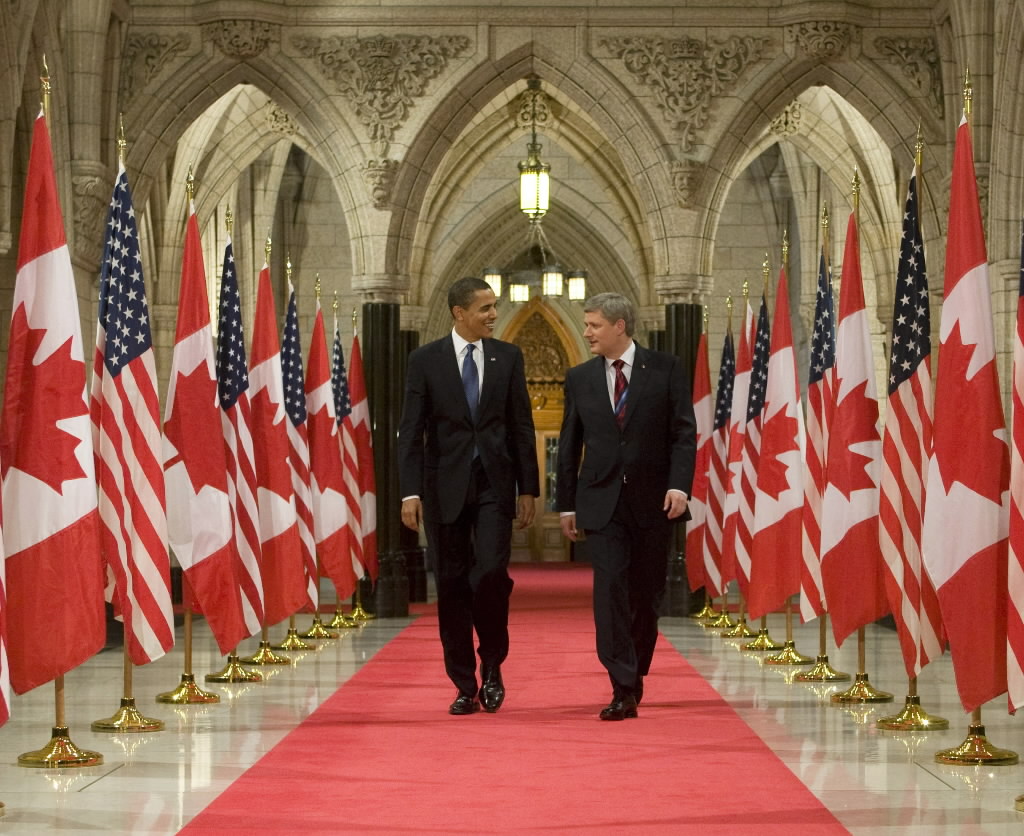Despite claims that U.S. refineries are beginning to lose interest in TransCanada’s Keystone XL pipeline, Prime Minister Stephen Harper has written to U.S. President Barack Obama, attempting to obtain—once again— U.S. approval for the project. Lately, Harper and members of his cabinet have taken repeated trips to the U.S. in order to lobby for pipeline approval. However, these trips did not allay U.S. environmental concerns about the project, and Harper’s letter, in which he pitches a new joint action plan on carbon emissions, can be viewed as a dramatic attempt to do so.
In the letter, Harper offers to accept U.S. emission targets for greenhouse gases for the first time. He also commits to help Obama with any “political cover he needs to approve the Keystone extension”. Still, the White House hasn’t responded to the letter as of last week, so it remains to be seen what success the dispatch will have.
Economic gains for Canada
The main economic motivation for the pipeline is straightforward. Canada, which sends most of its oil south of the border, accounts for close to 24% of U.S. oil imports. With the Alberta oil sands likely to increase Canadian oil production by 2 million barrels per day (Mbpd) by 2025, that percentage stands to significantly increase soon. If TransCanada is allowed to complete the pipeline, then the total capacity of their entire Keystone Pipeline system to deliver Canadian crude oil will increase to 1.3 million bpd. That is a capacity which makes it possible for Canadian oil exports to add an impressive $632 billion to Canada’s GDP over the next 25 years.
US pipeline debate
Advocates argue that the Keystone XL would also benefit the United States. First, the pipeline would undoubtedly create U.S. jobs, although the exact number of jobs it could generate range widely from as low as 2000 to as high as 42,000. The Keystone project would also contribute to U.S. energy security, because it could enable the U.S. to replace its oil supply from regions of geopolitical tension with Canadian crude oil when necessary. However, many Americans don’t think that these potential benefits compensate for the huge environmental risks associated with the pipeline. For starters, oil-sands crude produce a fuel that releases 8% to 37% more carbon [per gallon] than conventionally produced fuel. The environmental picture is bleaker still when considering the greenhouse gas emissions released during extraction. It is perhaps unsurprising, then, that influential American environmentalists— an important part of Obama’s political bedrock— have cast the pipeline decision as the true test of Obama’s commitment to the environment.
Economic growth v. Environmental sustainability
While Keystone undeniably challenges Obama’s commitment to the environment, it also presents an opportunity for two leading nations to explore ways of reconciling economic growth with environmental concerns. As more and more careful analysis highlights the risks of failure in this pursuit, it is encouraging to see business and government leaders working cooperatively in pursuit of innovation.
Canadian critics of the pipeline project are unimpressed with Harper’s environmental about-face. However, if the Prime Minister’s most recent letter leads to an agreement between Canada and the U.S., where the pipeline can be built and emissions targets met, then the nature of Harper’s motives for the letter will be a minor footnote in the face of such a major accomplishment.




